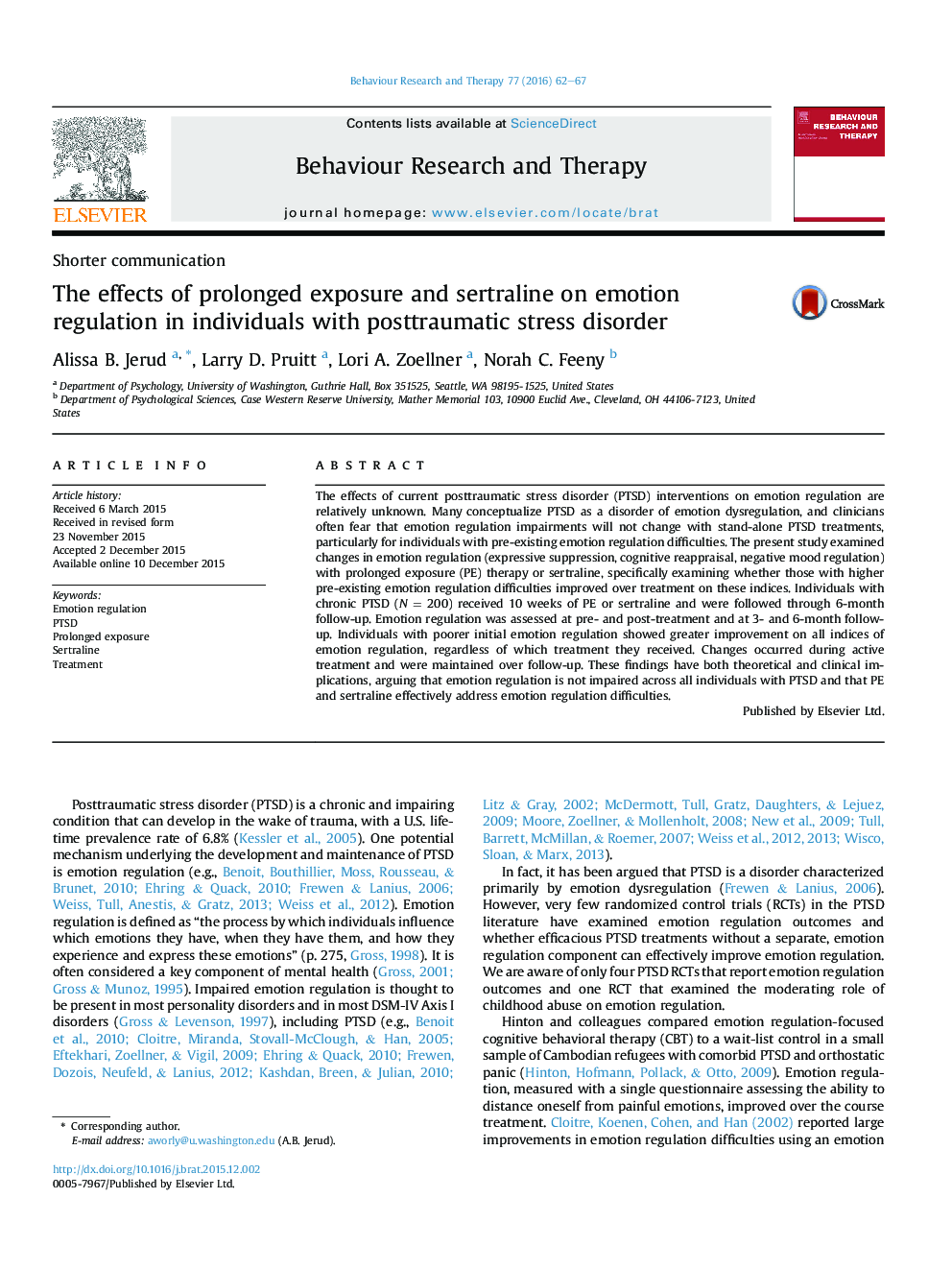| Article ID | Journal | Published Year | Pages | File Type |
|---|---|---|---|---|
| 901803 | Behaviour Research and Therapy | 2016 | 6 Pages |
•Examined changes in emotion regulation for patients undergoing PTSD treatment.•Not all patients with PTSD reported poor emotion regulation skills.•Emotion regulation improved with prolonged exposure (PE) and with sertraline.•Those with worse initial emotion regulation showed largest improvements.•Poor emotion regulation is not a contraindication for PE or sertraline.
The effects of current posttraumatic stress disorder (PTSD) interventions on emotion regulation are relatively unknown. Many conceptualize PTSD as a disorder of emotion dysregulation, and clinicians often fear that emotion regulation impairments will not change with stand-alone PTSD treatments, particularly for individuals with pre-existing emotion regulation difficulties. The present study examined changes in emotion regulation (expressive suppression, cognitive reappraisal, negative mood regulation) with prolonged exposure (PE) therapy or sertraline, specifically examining whether those with higher pre-existing emotion regulation difficulties improved over treatment on these indices. Individuals with chronic PTSD (N = 200) received 10 weeks of PE or sertraline and were followed through 6-month follow-up. Emotion regulation was assessed at pre- and post-treatment and at 3- and 6-month follow-up. Individuals with poorer initial emotion regulation showed greater improvement on all indices of emotion regulation, regardless of which treatment they received. Changes occurred during active treatment and were maintained over follow-up. These findings have both theoretical and clinical implications, arguing that emotion regulation is not impaired across all individuals with PTSD and that PE and sertraline effectively address emotion regulation difficulties.
